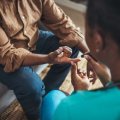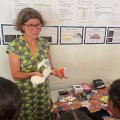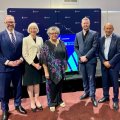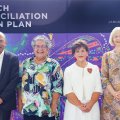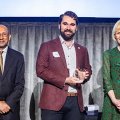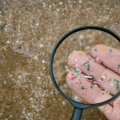
A new report released today has shed light on how sport programs for Indigenous youth can help lead to more fulfilling lifestyles for participants.
The report, a joint venture between the Laureus Sport for Good Foundation, The University of Queensland’s School of Human Movement Studies, and the Australian Sports Commission (ASC), is titled The Impact of Indigenous Community Sports Programs: The Case of Surfing.
ASC Chief Executive Officer Simon Hollingsworth said the report highlighted surfing had the potential to help young people reconnect with their communities.
While the report said surfing was not a “cure all” solution to the problems faced by some Indigenous communities, the programs undertaken by 98 participants revealed that culturally sensitive sport activities could lead to positive community outcomes.
“Some of the findings of the report include that surfing, while increasing water skills, could also provide opportunities to develop psycho-social skills related to confidence, self-esteem, empathy, maturity and independence,” Mr Hollingsworth said.
UQ researcher and Principal Investigator Dr Steven Rynne, referred to some of the report’s key insights at the informal launch in Burleigh Heads, Queensland.
“Over three years we found that a lot of these programs were highly successful, due to the fact that sport in general has the capacity to bring people together – which helps reinforce connections to land, culture, community and peers,” Dr Steven Rynne said.
“This aspect of Indigenous community sport programs was crucial to indigenous youth who felt quite isolated and disconnected from others.”
The ASC acknowledged the strong support of Surfing Australia in locating and liaising with the surfing programs.
For more information and copies of the report, visit http://www.ausport.gov.au/participating/indigenous/resources/research
Media: Kirsten Rogan, UQ Faculty of Health Sciences, 07 3346 4713or k.rogan@uq.edu.au or Brian Semmens, ASC, 02 6214 1476 or brian.semmens@ausport.gov.au
.jpg)



